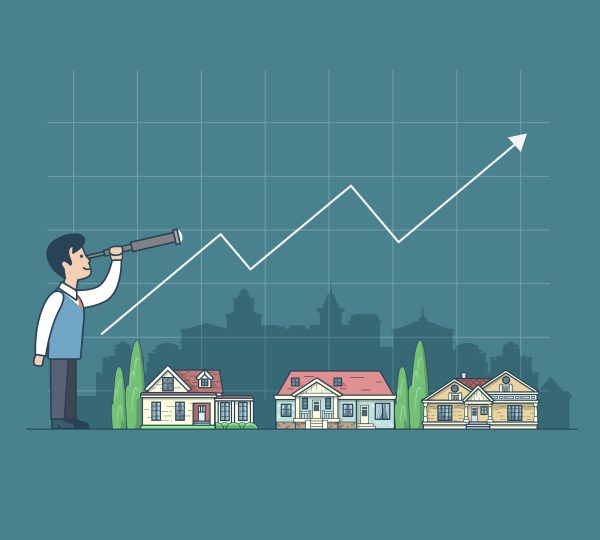As you can imagine, in our twenty-something years in this business, we have heard almost everything there is to say about real estate investing. Ethics-related complaints are among the most common ones we encounter. Is real estate investing morally acceptable? Are landlords bad people? Some people believe that this investment strategy ought to be eliminated.

The Three Main Ethical Arguments Against Real Estate Investing
Of course, we would disagree! Nevertheless, the ethical issue in real estate investing is crucial. We must not overlook the harm that the industry may have caused to individuals. To encourage ethical investing that helps local communities, we can consider these critiques, assess ourselves, and adjust our tactics.
First objection: Everyone else’s local markets are destroyed by speculative investing.
Buying properties in markets when they flare up is the most typical short-term technique of speculative investing
Now, having your foot in a hot market is perfectly acceptable! On the other hand, flippers frequently purchase real estate, make renovations, and then leave it unoccupied until they spot the ideal chance to optimize capital gains. When done in large quantities, this can disrupt the housing supply and artificially raise property prices. Local buyers who wish to take advantage of the reduced purchase and renovation prices and own and occupy the properties may also be inconvenienced.
Second objection: Real estate speculators hurt vulnerable groups and fuel gentrification.
A single investor cannot bring about gentrification. (For those who need a reminder, gentrification is the process by which a wealthier demographic displaces the local population by moving into a lower-income region.) When big investment conglomerates expand vast territories, this can occur. Rent, expenses, and home values may rise to the point where vulnerable residents can no longer afford them.
However, bank investment funds in the form of building loans might be limited and challenging to obtain, which means that blighted and abandoned homes remain unrepaired for longer periods and endanger neighbourhoods by fostering a climate that makes other properties vulnerable.
Third objection: Rental dwellers are taken advantage of by real estate investors.
Everybody has heard terrifying tales about landlords. They—and consequently, real estate investors—are frequently demonized. Furthermore, we won’t dispute that specific individuals and management firms treat their tenants or properties with disrespect. They might carelessly raise rent, neglect essential upkeep, and allow their avarice to hurt people around them.
Four Strategies for Making Ethical Real Estate Investing a Priority
So, how can we continue to use ethical and responsible investing strategies?
1. Consider investing in real estate as a people business.
Things tend to become more impersonal as they grow larger. Zooming back in and seeing people as individuals, not as numbers, nebulous demographics, or sources of income, would be beneficial.
There is no denying that real estate investing is a relational endeavour. You’ll be more ethical and sympathetic the more you see the humanity in your residents, partners, and vendors. It’s just instinctive. Work cannot be completed by pressing a simple button. An app cannot abruptly replace the work and effort that absolute human relationships can accomplish.
Even if you are a passive investor who never interacts with the residents of your properties, you can still do this. Employing trustworthy, caring managers and high-quality suppliers guarantees secure, well-maintained buildings and open, equitable communication with the residents.
2. Don’t let your standards be compromised.
Many investors decide to take shortcuts. In the short term, this could seem like a wise decision, but in the long run, it hurts both their portfolio and the people around them.
Don’t let your standards drop. Determine what you want to be as an investor, what you will and won’t tolerate, and what is and isn’t expected in the field. With a defined objective and high standards, you’re less likely to get lost and injure people.
3. Seek out chances to enhance sustainability
Energy efficiency isn’t the only aspect of sustainability. It all comes down to making calculated choices that increase productivity and property lifespan.
It is sustainable to purchase and repair a property that would otherwise be empty and dilapidated. Renovating old properties benefits both the market and the environment. Your investments impact the market in which they operate.
Most of the money spent on neighbourhood revitalization and renovation has had a hugely positive impact in towns like Memphis, which have been hotspots for long-term buy-and-hold investors. It has assisted in preserving neighbourhoods and rescuing others from danger.
In some instances, our influence as investors can change people’s lives. Consider whether that effect will be favorable!
4. Invest for the long haul
Lastly, we urge all real estate investors to prioritize long-term planning above short-term considerations. Short-term investors usually exacerbate overheated markets and create problems with artificial price inflation. They don’t think about how their actions will affect the place because they won’t be here for long.
However, a long-term investor gives back to the neighbourhood. The ecosystem includes them, so they have a stake in the stability and well-being of that market. Everyone gains from that way of thinking.



